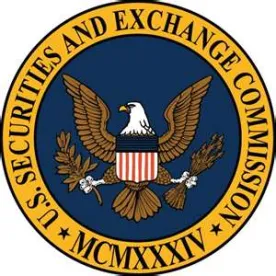On August 18, the Securities and Exchange Commission (SEC) issued an order[1] approving proposed Financial Industry Regulatory Authority (FINRA) rules exclusively applicable to firms that meet the definition of a "capital acquisition broker" (CAB) and that elect to be governed under the new rules.
In particular, FINRA members engaged in a limited range of corporate finance and related institutional securities activities are eligible to elect to be governed by the abridged FINRA rules applicable to CABs (CAB Rules). Such firms are often registered as broker-dealers because of their activities (such as advising on mergers and acquisitions, advising issuers concerning raising debt and equity capital in private placements with institutional investors, and related activities) and the transaction-based compensation they receive. However, they do not engage in many of the activities typically associated with traditional broker-dealers such as carrying or introducing customer accounts, handling customer funds or securities, or accepting orders to buy or sell securities either as principal or agent for a customer. As a result, FINRA proposed separate, streamlined CAB Rules that are tailored to the limited activities of such firms and relieve them of the obligation to comply with a variety of FINRA rules that are geared toward the activities of traditional broker-dealers.
CAB Eligibility
CAB Rule 016 defines the term "capital acquisition broker" as any broker that solely engages in one or more of the following activities:
-
advising an issuer, including a private fund, concerning its securities offerings or other capital raising activities;
-
advising a company regarding its purchase or sale of a business or assets or regarding its corporate restructuring, including a going-private transaction, divestiture or merger;
-
advising a company regarding its selection of an investment banker;
-
assisting in the preparation of offering materials on behalf of an issuer;
-
providing fairness opinions, valuation services, expert testimony, litigation support and negotiation and structuring services;
-
effecting securities transactions solely in connection with the transfer of ownership and control of a privately held company through a transaction involving securities or assets of the company, to a buyer that will actively operate the company in accordance with the terms and conditions of an SEC rule, release, interpretation or "no-action" letter that permits a person to engage in such activities without having to register as a broker or dealer pursuant to Section 15(b) of the Securities and Exchange Act of 1934 (the "Exchange Act"); and
-
qualifying, identifying, soliciting or acting as a placement agent or finder (1) on behalf of an issuer in connection with a sale of newly issued, unregistered securities to institutional investors, or (2) on behalf of an issuer or control person in connection with a change of control of a privately held company. CAB Rule 016 defines the following terms for purposes of the foregoing:
-
"Institutional investors" include banks, insurance companies, registered investment companies, certain employee benefit plans and qualified plans, governmental entities, persons (including entities) with total assets of at least $50 million, "Qualified Purchasers" as defined in the Investment Company Act of 1940, and a person acting solely on behalf of an institutional investor. Notably, although FINRA included Qualified Purchasers (generally, individuals who own at least $5 million in investments and companies that own and invest on a discretionary basis at least $25 million in investments) in the "institutional investor" definition, it declined to include Accredited Investors (generally individuals whose income exceeds $200,000 or who have a net worth over $1 million, certain entities with over $5 million in assets, and certain regulated entities).[2] Accordingly, private funds operating under Section 3(c)(7) of the Investment Company Act (where investors must be Qualified Purchasers) may consider using CABs as placement agents for newly issued securities, but private funds operating under Section 3(c)(1) (which can be distributed to Accredited Investors) should not (if a CAB acted as a placement agent for a Section 3(c)(1) fund in connection with the sale of newly issued securities, it would be able only to solicit interest from Accredited Investors who also qualify as Qualified Purchasers).
-
A "control person" is "a person who has the power to direct the management or policies of a company through ownership of securities, by contract, or otherwise. Control will be presumed to exist if, before the transaction, the person has the right to vote or the power to sell or direct the sale of 25 percent or more of a class of voting securities or in the case of a partnership or limited liability company has the right to receive upon dissolution or has contributed 25 percent or more of the capital."
-
A "privately held company" is "a company that does not have any class of securities registered, or required to be registered, with the SEC under Section 12 of the Exchange Act or with respect to which the company files, or is required to file, periodic information, documents, or reports under Section 15(d) of the Exchange Act."
-
A broker-dealer will be permitted to register with FINRA as a CAB, or to change its membership status with FINRA to a CAB, only if the firm solely engages in the above activities. Conversely, under CAB Rule 016(c)(2) a FINRA member is not eligible for CAB status if the firm:
-
carries or acts as an introducing broker with respect to customer accounts;
-
holds or handles customers' funds or securities;
-
accepts orders from customers to purchase or sell securities either as principal or as agent for the customer (except as permitted by paragraphs (f) and (g) above);
-
exercises investment discretion on behalf of any customer;
-
engages in proprietary trading of securities[3] or market making activities;
-
participates in or maintains an online platform in connection with offerings of unregistered securities pursuant to Regulation Crowdfunding or Regulation A under the Securities Act of 1933; or
-
effects securities transactions that will require the broker or dealer to report the transactions under the FINRA Rule 6300 Series, 6400 Series, 6500 Series, 6600 Series, 6700 Series, 7300 Series or 7400 Series.
Electing CAB Status
An eligible firm applying for FINRA membership as a CAB should follow the typical FINRA application process for full-service broker-dealers except that the firm's application must state that the firm will operate only as a CAB. In addition to the standards for admission applicable to all applicants under NASD Rule 1014, FINRA will consider whether the applying firm's proposed activities are within the scope of permissible activities for CABs.
Existing FINRA members also may elect to convert to CAB status.[4] Conversion does not require a New Member Application or a Change in Membership Application, assuming the existing FINRA firm will not have a change in ownership, control, or business operations. Instead, the firm must file a request to amend its existing firm membership agreement (or to obtain a new firm membership agreement if none exists) providing that the member (1) will limit its activities to those permitted for CABs under CAB Rule 016(c); and (2) agrees to comply with the CAB Rules.[5] There is no application fee associated with the conversion.[6]
FINRA also created a grace period permitting a member firm to terminate CAB status and continue as a full, non-CAB FINRA member, within one year of the membership agreement amendment described above.[7] To do so, the firm need only notify FINRA of the change and is not required to file a material change in business operations application under NASD Rule 1017. The firm also must file a request to amend its membership agreement to provide that the firm agrees to comply with all FINRA rules, and must execute an amended membership agreement imposing the same limitations on the firm's activities that existed before the member converted to a CAB.
After the one-year grace period ends, a FINRA member that converted to CAB status but would like to again become a full, non-CAB FINRA member must (1) file a Change in Membership Application and pay an associated fee, and (2) amend its membership agreement to provide that the member agrees to comply with all FINRA Rules.[8] The same holds true for FINRA members that elect CAB status from the outset of their membership and later decide to convert to full, non-CAB membership.
If a FINRA member that has elected CAB status, or its associated person, engages in broker-dealer activities that are inconsistent with the limitations imposed on CABs, FINRA may examine for and enforce all FINRA rules against such member firm or associated person, including any rule that applies to non-CAB FINRA members and their associated persons.[9]
FINRA Members That Elect CAB Status Are Subject To Streamlined Rules Customized for CABs
FINRA members that limit their activities to those that are permissible for a CAB do not engage in many of the activities that are addressed by or otherwise contemplated by a great many of the rules otherwise applicable to FINRA members. Therefore, the CAB Rules are tailored to the limited scope of activities engaged in by CABs and relieve CABs of the obligation to comply with a variety of FINRA rules. In particular, the CAB Rules identify those FINRA rules that are applicable to CABs, include various streamlined rules applicable only to CABs, and state that CABs are subject to FINRA by-laws "unless the context requires otherwise." [10] Except as is set forth in the CAB Rules, all other FINRA Manual rules are inapplicable to CABs. Attached to this advisory as Exhibit A is a chart that lists the various rules set forth in the FINRA Manual and indicates whether each such rule applies to CABs, does not apply to CABs, or has been revised or otherwise streamlined in the CAB Rules.
Effective Date
FINRA has not announced an effective date for the new rules but will do so no later than 60 days following SEC approval, and the implementation date will be no later than 180 days following FINRA's announcement.[11]
[1] Order Approving Rule Change as modified by Amendment Nos. 1 and 2 to Adopt FINRA Capital Acquisition Broker Rules, Securities Exchange Act Release No. 78617 (Aug. 18, 2016) (SEC Order), 81 FR 57948 (Aug. 24, 2016), available here.
[2] SEC Order, at 33–35.
[3] Notably, a CAB acting as a placement agent may not sell securities in the secondary market that it received from an issuer as part of its compensation. FINRA explains that "allowing a CAB to dispose of securities that it receives as compensation for placement agent services would likely be inconsistent with the prohibition on a CAB engaging in proprietary trading, and could be interpreted as allowing trading activities that do not fall within a CAB's business model." SEC Order, at 31; Letter from Joseph P. Savage, FINRA, to Brent J. Fields, SEC (Aug. 16, 2016) (FINRA Response), at 8, available here. Generally, CABs may act as a placement agent or finder in secondarytransactions only as described in paragraphs (f) and (g)(2) above, and only if the secondary market transactions would not require the firm to report the transaction under the FINRA trade reporting rules. SEC Order, at 7 n.15; see also Notice of Filing of Partial Amendment No. 2 to Proposed Rule Change to Adopt FINRA Capital Acquisition Broker Rules, Exchange Act Release No. 78220 (July 1, 2016), 81 FR 44372, 44372-73 (July 7, 2016).
[4] Existing FINRA firms that are eligible for CAB status are not required to convert. Such firms may simply continue to abide by the full FINRA rule book applicable to FINRA members.
[5] CAB Rule 116(b).
[6] SEC Order, at 9 n.16.
[7] CAB Rule 116(d).
[8] CAB Rule 116(c); SEC Order, at 9.
[9] CAB Rule 240; see also FINRA Response, at 18.
[10] FINRA has explained that “unless the context requires otherwise” generally means that a FINRA by-law applies to CABs unless application of the provision "would lead to a clearly incorrect result." FINRA Response, at 4; see SEC Order, at 22.
[11] SEC Order, at 20.




 />i
/>i